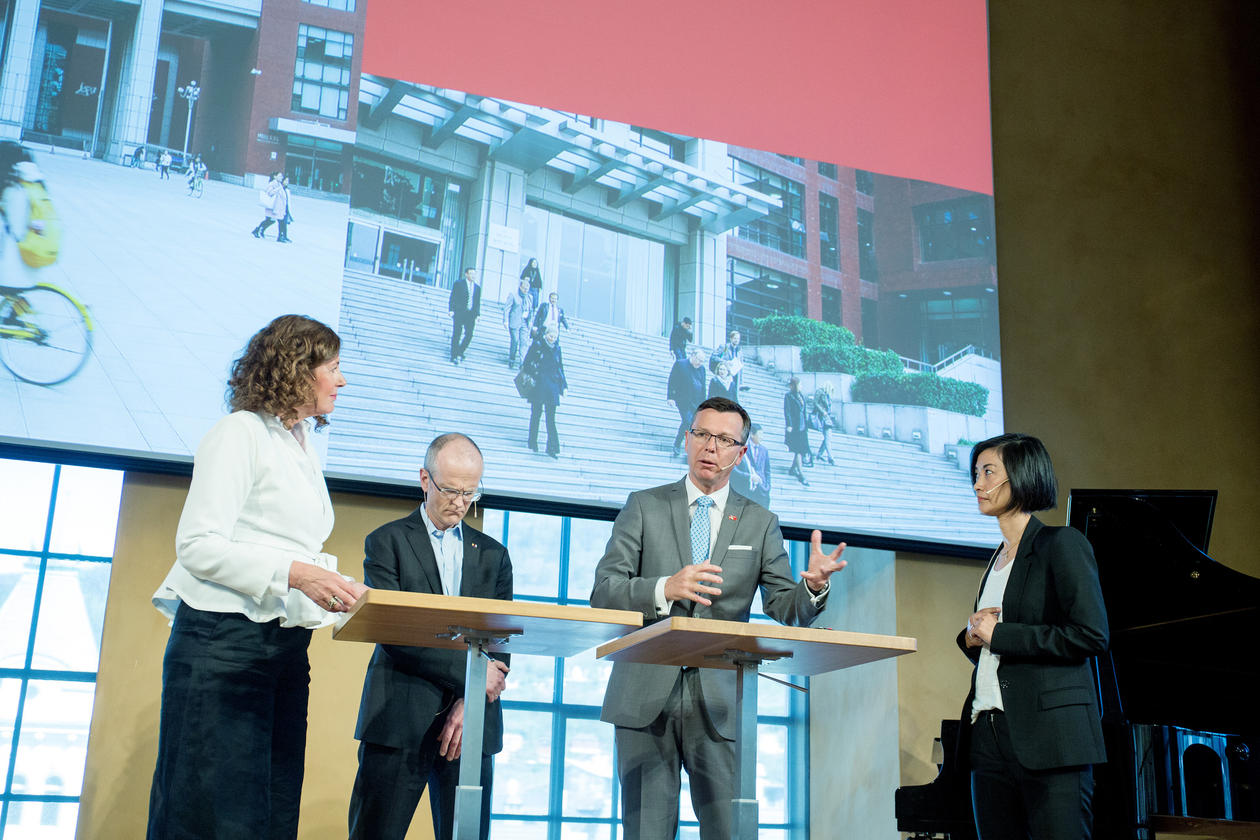Extensive Cooperation with China
Global challenges facing society and the cooperation between UiB and China were key topics during the China Conference 4 May.

Main content
- Historically, Western research institutions have spent a lot of energy attracting the best heads from Chinese universities. At UiB, we have more faith in developing real, long-term partnerships that contribute to strong academic environments – in both China and Norway, Rector Dag Rune Olsen said in his opening speech during the China Conference 4 May.
In his speech, the UiB rector was unambiguous about wanting to strengthen the relationship with China in the years to come, an objective he underscored in the feature article in Bergens Tidende «The Key to China» (in norwegian) on 4 May. Special mention is made in the chronicle of the Norwegian China Law Centre, which offers law students courses in Chinese law combined with practical work-study placement in Shanghai or Beijing.
The goal: to bolster cooperation
The goal of the conference on 4 May was to focus on and strengthen the comprehensive cooperation between UiB and China. The university has several education and research environments that have good relations with research and education institutions in China.
Moreover, Bergen’s business community is very interested and involved in several of these activities. The desired goal is for the business community and UiB to create even tighter bonds in the future in terms of these activities. We want to exchange experiences, showcase good examples and discuss ambitions for increased cooperation with Chinese institutions and business stakeholders. One key topic was how UiB and China can build a knowledge base pertaining to global challenges facing society.
Opening of the Norwegian China Law Centre
The first part of the programme was devoted to the formal opening of the Norwegian China Law Centre, which is a national centre that will assume a key role in coordinating all activities that the Faculty of Law shares with China.
On several occasions during the conference, it was pointed out that the timing for the opening of the centre is perfect, because Norway’s relations with China are now moving towards normalization.
One of the centre’s primary activities involves student exchanges between the Faculty of Law and the counterpart law studies programmes in China. Andreas Slettevold, who has been an exchange student in China, said that it is easy to get an education in Norway and that it is also easy to draw the conclusion that what we learn here represents the only correct knowledge and procedure. When one is given the opportunity to experience that other countries have different perspectives on similar issues, one acquires a much broader understanding of our own legal system and of the differences between countries, Slettevold emphasizes. In addition, he thinks that being able to discover new countries and new cultures and to experience living in countries so different from our own is the most important outcome from an exchange like this.
Cooperation in solving global challenges facing society
The Faculty of Law is not alone in strongly prioritizing cooperation with China; other academic environments at UiB have also developed good research and study initiatives targeting China. The Bjerknes Centre, for example, has been collaborating with Chinese institutions on climate changes since 2003. During the conference, we encountered, among others, the Department of Biology, which showcased a comparative research project on the ecosystem in the alpine mountain regions of Norway and China. In addition, we met brain researchers in the field of biomedicine who have committed to collaboration with a growing research environment in China, and we listened to a presentation on welfare research in the field of comparative politics.
What all the projects share in common is a body of students and researchers who have excellent relations with China in several areas. The purpose of academic collaboration with China is scientific and cultural reciprocity, and all the researchers and students who addressed the assembly on 4 May cited the good relations they had with their counterparts in China – including during the years when the political climate between the two nations was rather chilly.
- Politically speaking, this conference couldn’t have come at a better time, said Øyvind Halleraker, the Norwegian Parliament’s First Vice Chair of the Standing Committee on Foreign Affairs and Defence. - After six years of frosty political relations with China, the relationship between our two countries is finally beginning to thaw, he continued, emphasizing how important China is for Norway in terms of trade, education and research and referring to the growing number of Chinese visitors who come to Norway to pursue a wide range of research and educational objectives.

